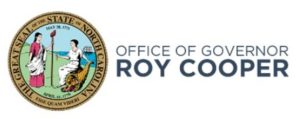
Special to Iredell Free News
RALEIGH — Gov. Roy Cooper on Wednesday signed House Bill 347, Sports Wagering/Horse Racing Wagering, into law. The bipartisan legislation will authorize and regulate wagering on professional, college and amateur sports and on horse racing in North Carolina.
“This legislation will help North Carolina compete, make sure taxpayers receive a share, create many good-paying jobs and foster strong economic opportunity,” Cooper said. “As we move forward, we should work to make sure more of the revenue is used to invest in our public schools, teachers and students.”
Cooper was joined by representatives from professional sports organizations, including the Charlotte Hornets, Carolina Panthers, Carolina Hurricanes, Charlotte Football Club, NASCAR and the PGA Tour. The governor was also joined by Rep. Zack Hawkins, Rep. Jason Saine and Sen. Paul Lowe for the bill signing.
House Bill 347 charges the North Carolina State Lottery Commission with regulating sports wagering and will be responsible for issuing licenses and collecting any license application fees. Licenses will be valid for five years and types of licenses include interactive sports wagering license, service provider license and sports wagering supplier license.
The legislation will create two ways to place a sports wager – in-person at a place of public accommodation or as a registered player via an interactive account. The interactive sports wagering operator would be responsible for ensuring the identity and age of any person trying to place a wager.
To place a wager, a person must be at least 21 years of age.
Sports wagers would be authorized on professional sports, college sports, electronic sports, amateur sports or any other event approved by the Commission.
This bill invests the proceeds collected in the Department of Health and Human Services for gambling addiction education and treatment programs; North Carolina Amateur Sports; 13 public universities; major events fund to help bring sporting events and festivals to the state; the North Carolina Outdoor Heritage Advisory Council and the state’s General Fund, among other purposes.



